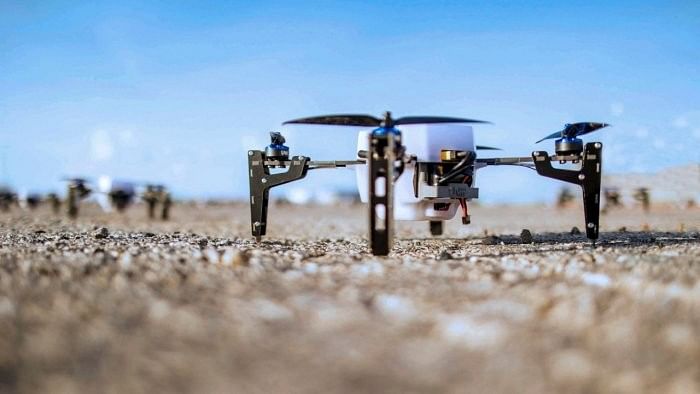
Represenatative image for drone.
Credit: Reuters File Photo
Panaji: The Centre's ambitious scheme promoting use of drones in farming has found only one taker in Goa so far, the state government has told the legislative assembly.
In a written reply tabled in the House on Friday, state Agriculture Minister Ravi Naik told independent MLA Aleixo Reginaldo Lourenco that till now only Don Bosco Loutolim Society, Loutolim in Salcete taluka was using a drone for farming, which it purchased by availing subsidy from the agriculture department.
"The Goa government is actively promoting the use of drone technology in agriculture through several initiatives and partnerships aimed at increasing efficiency and sustainability in farming practices," he said.
The scheme named as Sub-Mission on Agricultural Mechanisation (SMAM), which is a centrally-sponsored scheme, is available for farmers in Goa to purchase drones in terms of financial assistance offered or subsidy provided including the cost of the drone.
Naik said that financial assistance of 40 per cent at the base price of drones and related components up to a maximum of Rs 4 lakh under the centrally-sponsored scheme is provided.
Responding to another query, he said that drone farming provides several advantages over mechanised and traditional farming, particularly in terms of providing fertiliser to the crop, safeguarding health of the farmers, reduction in cost and time to perform the designated functions among others.
Farmers operate drones remotely, which significantly reduces their exposure to fertilisers and pesticides, he said.
"This minimises health risks associated with pesticide handling and inhalation," he added.